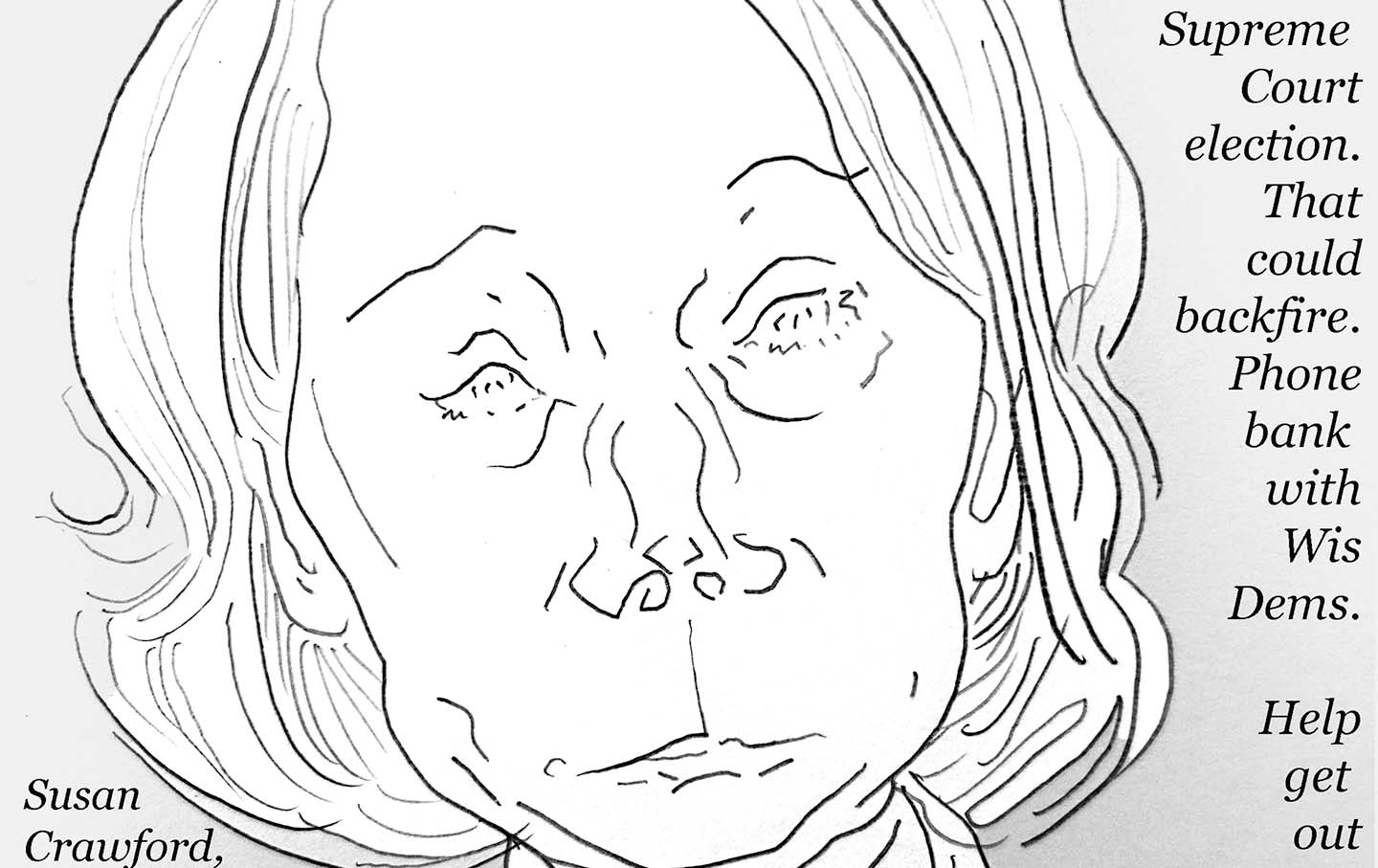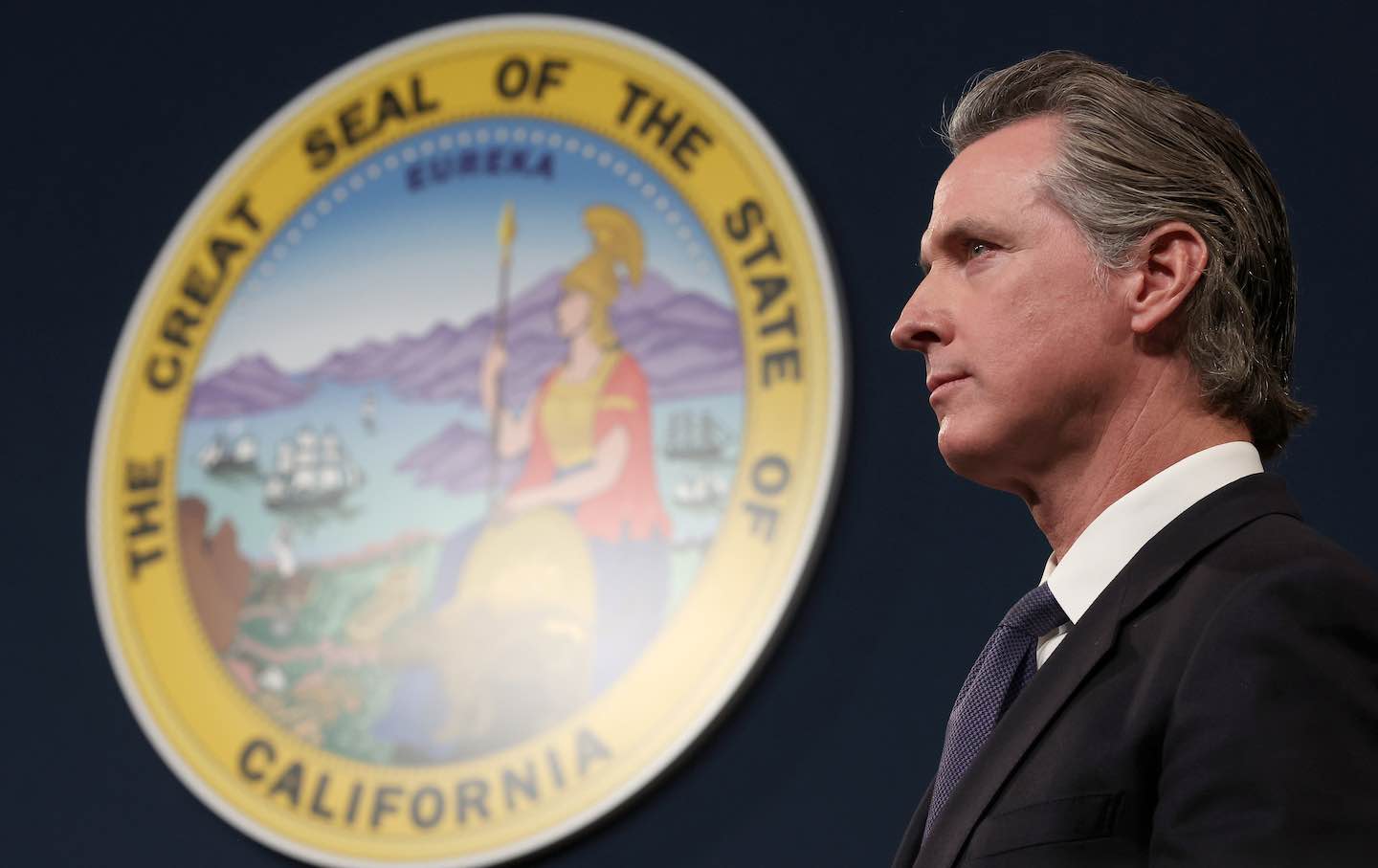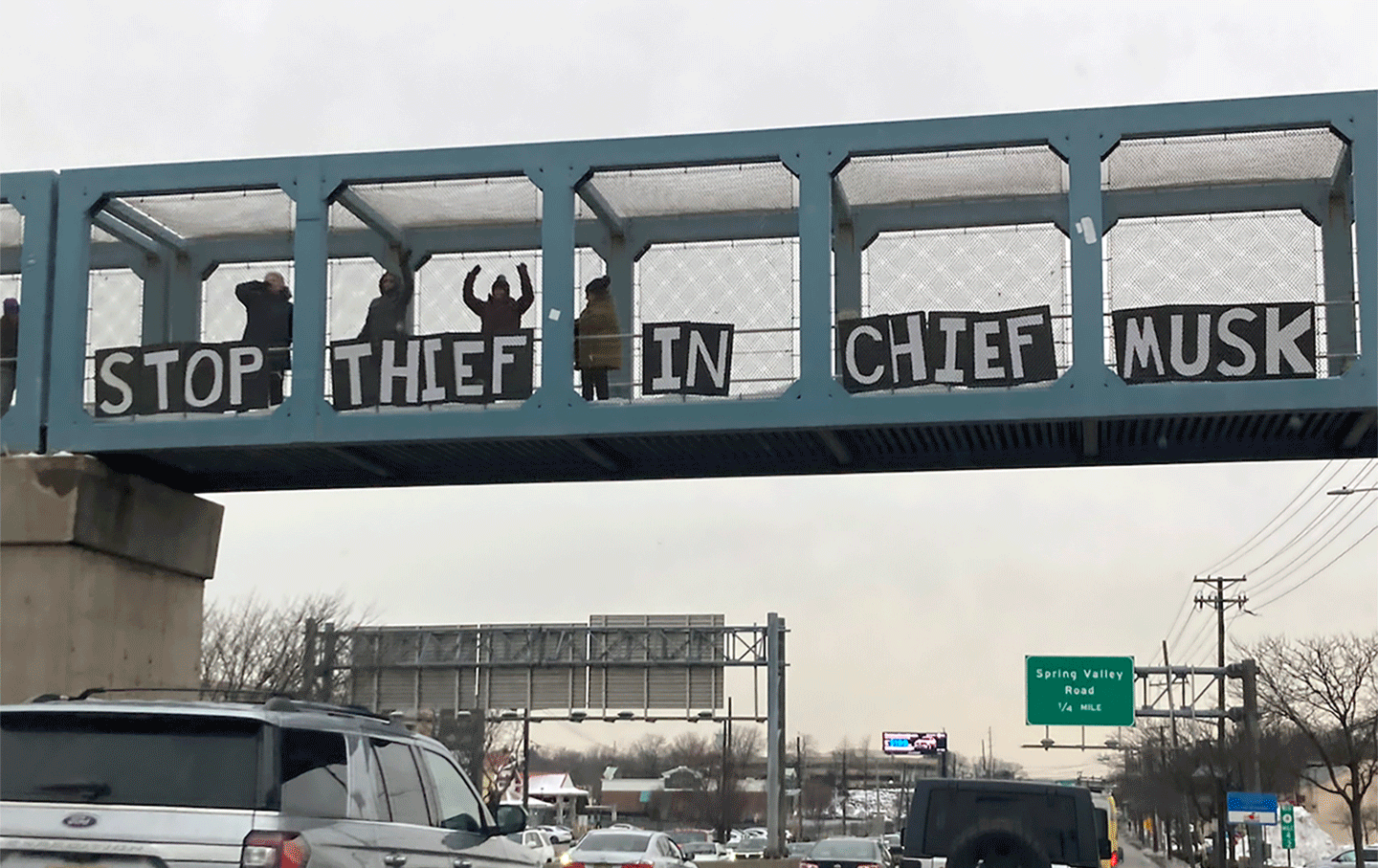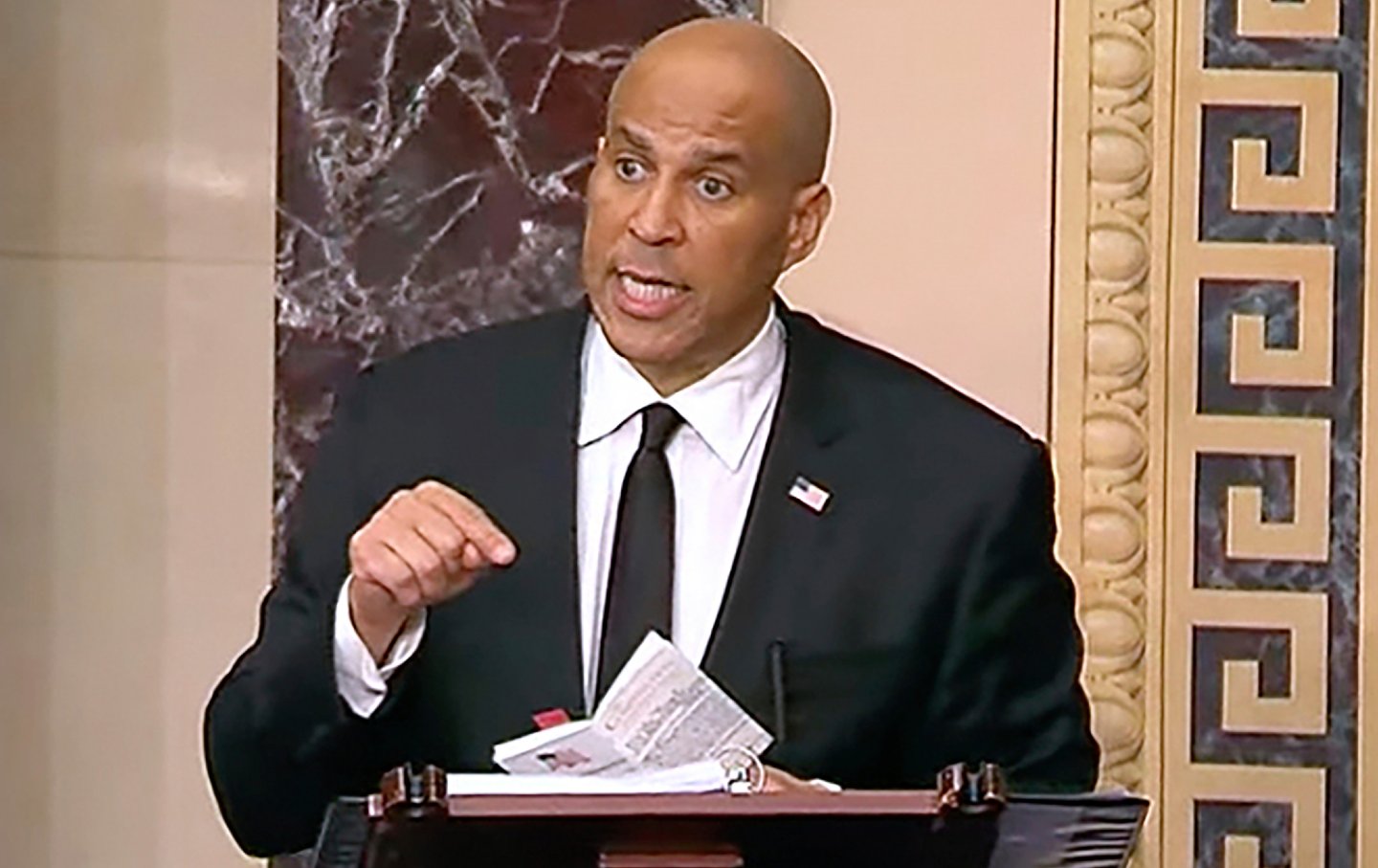Trump’s Conviction Was Supposed to Boost His Popularity. It Hasn’t.
Contrary to Republican claims that the public would see their presumptive nominee’s criminal trial as a political persecution, polls are showing that voters aren’t convinced.
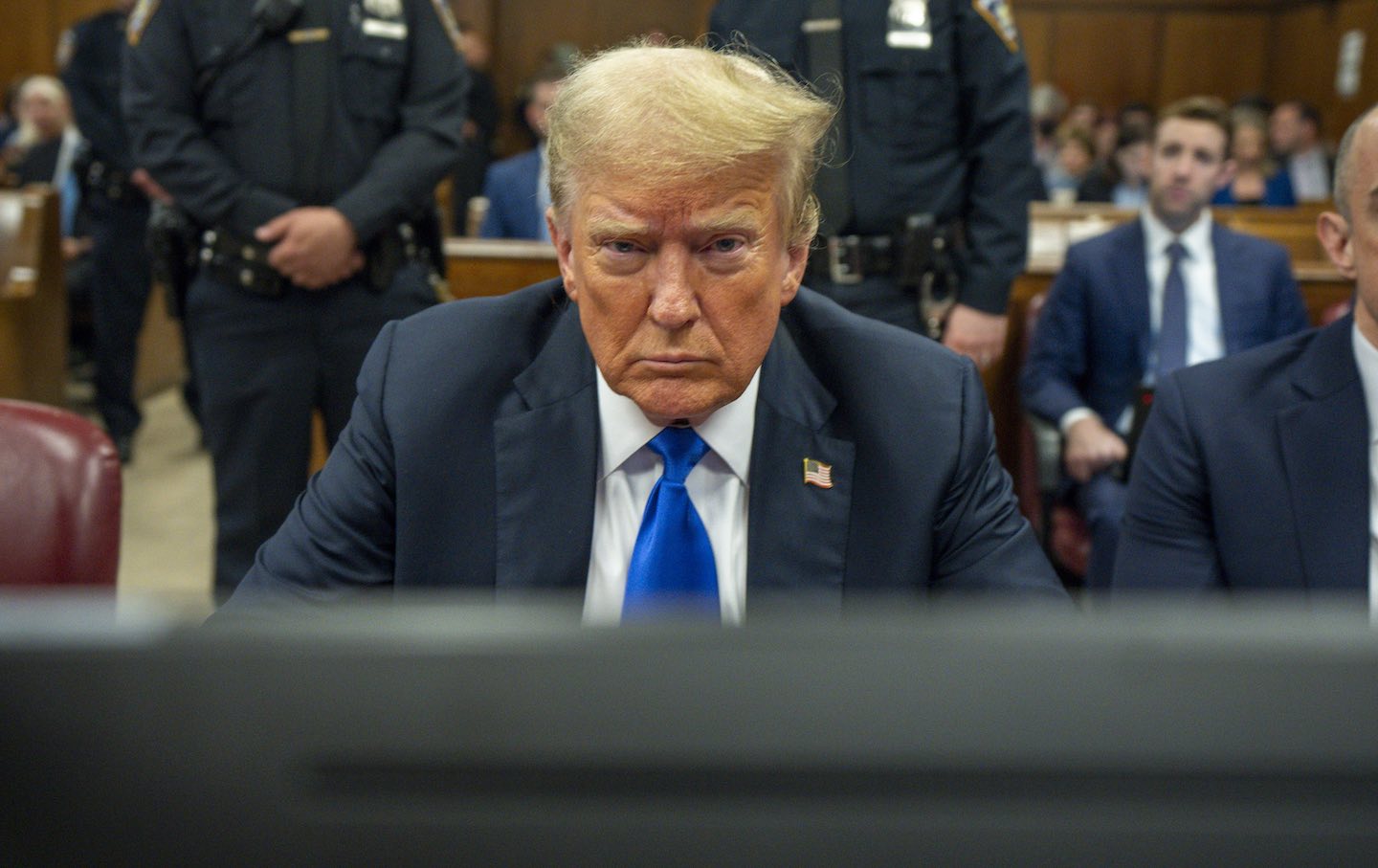
Donald Trump attends his trial at Manhattan Criminal Court on May 30, 2024, in New York City.
(Steven Hirsch / The New York Post)
Amid the steady torrent of MAGA-branded falsehoods and cynical spin jobs streaming through this election season, one whopper has stood out: the notion that Donald Trump’s criminal conviction in New York would prove an asset to his reelection campaign. Duly parroted among the Beltway press and right-wing pundits, this claim distilled a long series of GOP talking points on the reckless and tyrannical conduct of Democratic “lawfare” targeting the former president. As righteous Americans saw the fallout from this campaign, they’d rise up in outrage on Trump’s behalf—or so went the standard MAGA refrain.
But now that the verdict has sunk in—and Biden strategists have awakened to the advantages of pitching an aggressive message around Trump’s rampant criminality—voters are looking unlikely to join the retinue of MAGA leaders in storming the Bastille. A new poll from Politico/Ipsos finds that 21 percent of independent voters say that Trump’s conviction makes them less likely to vote for him, with just 5 percent describing themselves as more likely to support him on the basis of his felon status. In what looks to be a close election in which swing voters may once again play an outsize role, these numbers are anything but good news for the Trump campaign.
The survey does, however, show that other elements of the MAGA agitprop campaign against the verdict have been more successful. Forty-three percent of respondents said that President Joe Biden had helped to bring the prosecution against Trump—another rank MAGA falsehood that congressional leaders are trying to sow more widely with bogus inquiries into the New York prosecution. Still, 51 percent repudiated this claim—and in the wake of Hunter Biden’s recent federal conviction on gun charges, combined with a September trial date for the presidential failson’s alleged tax offenses, the lawfare lie faces steep obstacles.
Given the overall distractibility of the voting public, and the GOP’s overt strategy to spread baseless conspiracy theories among low-information voters, it’s critical for Democratic campaign messaging to continue hammering away at this central Trump liability. The good news is that, for once, Democratic strategists are stirring out of their habitual defensive crouch and moving into attack mode. The Biden campaign recently debuted a $50 million ad buy for a cogent TV spot called “Character Matters,” which will blanket swing states in the week leading up to the June 27 presidential debate. “In the courtroom, we see Donald Trump for who he is,” a somber voiceover announces over black-and-white images of Trump in court. “He’s been convicted of 34 felonies, found liable for sexual assault, and he committed financial fraud.” After touting Biden’s record on issues like corporate accountability, the ad archly sums up the stakes of the 2024 presidential balloting: “This election is between a convicted criminal who’s only out for himself and a president who’s fighting for your family.”
It’s a welcome and blunt message after an initial bout of hand-wringing in Democratic circles over how and whether to highlight Trump’s conviction in Biden campaign pitches. The party’s chronic posture of meek institutional deference was clearly unsuited to meet the historic moment of a major party’s presumptive nominee’s conviction in a jury trial; in the first few days after the jury verdict, it appeared that party leaders would continue blindly insisting that the important thing was to contrast the two candidates’ governing records, and to let Trump’s criminal conviction speak for itself.
In reality, of course, criminal conspiracy is the Trump governing record, from the cronyist deals he cut for his business interests and immediate family members to his flagrant auctioning of policy stances in exchange for campaign backsheesh. As the general election season heats up, the main challenge for Biden’s campaign is to reinforce these key connections exposing the pseudopopulist rhetoric of the MAGA movement as nothing more than a rolling grift spearheaded by a felon and lifelong fraudster. As it happens, the new Politico/Ipsos poll points toward that very direction: Instead of documenting rapidly spreading popular suspicion of the basic operations of lower courts, it found that the public most distrusts the US Supreme Court—which Trump steered irrevocably rightward under the direction of the Federalist Society, a hard-right dark-money colossus. Just 39 percent of respondents said they found Supreme Court justices to be trustworthy; by contrast, 54 percent said they trusted the legal judgment of jurors—the same legal actors who put Trump on the verge of a potential jail term.
As Brian Beutler has argued, all the elements are in place for Biden and his Democratic backers to mount a wide-ranging assault on the mobbed-up, pay-to-play model of Trumpian governance, which now is poised to dramatically upend everything from basic job protections for the federal workforce to Middle East policy to climate mitigation efforts to the tax code. Conveniently, much of this money-driven government makeover is copiously documented in Project 2025, the Heritage Foundation’s blueprint for a second Trump term—and the subject of The Nation’s most recent cover package. Now that the Biden campaign has finally found the gumption to draw on Trump’s criminal record for its core messaging, it must press home the broader indictment of Trumpian rule as graft by another name. After all, the payments a con man makes are typically far less consequential than the ones he receives.

